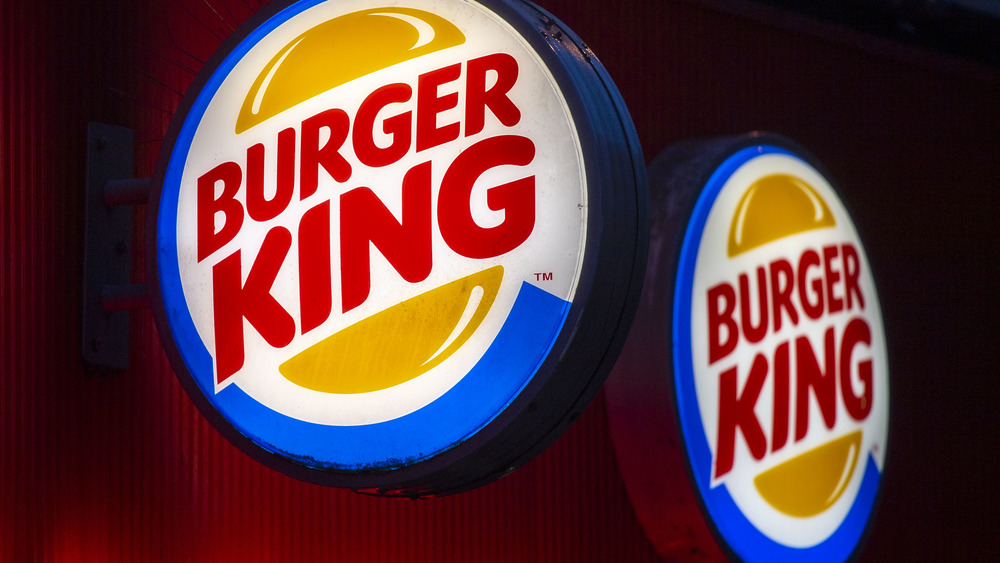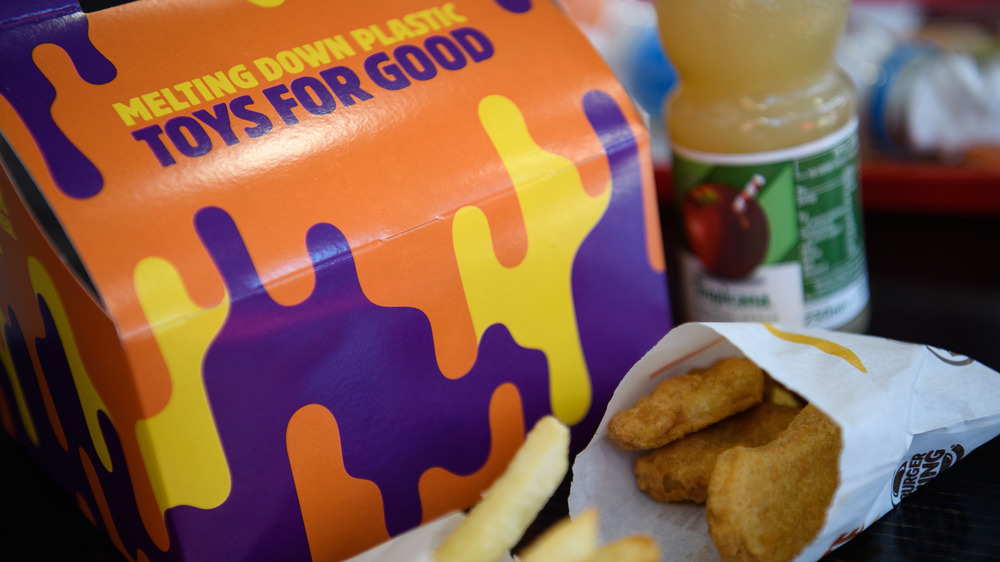The Ambitious Sustainability Goals Burger King UK Has For 2025
Burger King UK has announced a new charter that will set it to become more sustainable over the next five years. The various goals are listed on Burger King UK's website under the title "Burger King For Good." Goals listed include sourcing all tea, coffee, and cacao products from Fairtrade Farmers, reaching 100 percent sustainability for palm oil, and sourcing all timber and paper from managed forests.
More ambitious is their adoption of the roadmap for reduced food waste laid out by the Waste & Resource Action Program, a British charity aimed at achieving the circular economy. These milestones are ensuring that 100 percent of all packaging is either renewable or recyclable by 2025, as well as raising the amount of plastic sourced from recycled content to 30 percent. The fast food chain also aspires to make sure all packaging is recycled by 2025, and reduce the use of single use plastics to 0 percent by 2025. "Being good to the planet, our people and guests is central to our values at Burger King UK, and despite the challenges faced by the pandemic, I believe this crisis has given us an opportunity to 'build back better' and drive through our company values, which are integral to sustaining our business for the future," Alasdair Murdoch, CEO of Burger King UK, said in a quotation from Green Business.
Currently, these goals have not been adopted by Burger Kings of other nationalities.
Burger King has long focused on sustainability
Despite not explicitly expanding Burger King UK's sustainability goals, Burger King has shown a track record of working towards some kind of sustainable fast food future. In 2020 alone, Burger King revealed two initiatives.
The first initiative Burger King undertook was to stop their cows from farting so much. As CNN reported in June, Burger King introduced 100 grams of lemongrass to their cows' diet to reduce their flatulence by 33 percent per day. Gizmodo reported in 2014 on how the methane from cow farts and burps contributed to the greenhouse gases building in our atmosphere. "It's estimated, through whichever orifice, that each individual cow lets out between thirty and fifty gallons of methane per day. With an estimated 1.3 to 1.5 billion cattle in the world today, this adds up fast."
The second initiative came out in October when, according to Fox News, Burger King revealed it would give their reusable packages a trial run in Portland, Tokyo, and New York City in 2021. To do this, they teamed up with Loop to realize a system in which cups and boxes are returned, cleaned, and reused. However, as Forbes wrote in December, the amount of meat we as a species eat is unsustainable, meaning eventually we'll just have to consume less. Unless Burger King addresses that unsustainable aspect of its model, the good it will definitely do with its initiatives will remain limited.

